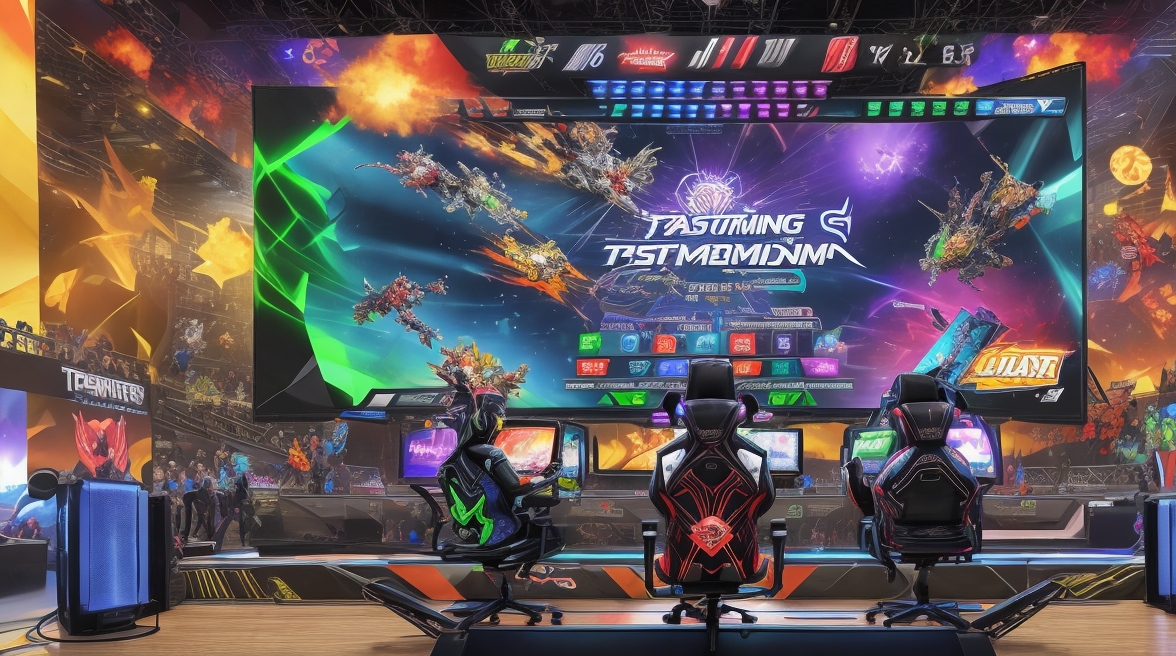A Complete Guide on How to Run a Successful Gaming Tournament
Organizing a gaming tournament can be exciting if you want to establish a large-scale event with professional players or gather friends for some friendly rivalry. Adhering to a systematic method is crucial to ensuring your Tournament is memorable and properly functioning. From preparation to execution, this guide will lead you through the essential processes of organizing a productive gaming tournament.
1. Establish Your Tournament Goals
1.1 Pick Your Objectives
Make sure you know your Tournament’s goal before worrying about the details. Are you hoping to organize a high-profile competition, or are you hoping to start a small-scale community event? Your goals will direct your strategy and assist you in reaching important decisions.
1.2 Select the Appropriate Game
Choose a game that makes sense for your target audience and aims. Consider elements like the game’s competitive balance, genre, and popularity. Ensure there are many players and community support for the game.
2. Make Gaming Tournament Plans
2.1 Make a thorough schedule
Create a thorough schedule for your competition. Important dates like the final event day, match dates, and registration deadlines should be included. If you’re holding an online event, consider time zone differences.
2.2 Create a Budget for Your Event
Calculate how much it will cost to host your event. It covers any extra costs for marketing, prizes, equipment, venue leasing, etc. Ensure you don’t over budget by carefully allocating your funds to meet all the essential expenses.
2.3 Safeguarded Partners
Speak with possible sponsors who share your audience’s and event’s goals. Sponsorships can help with cost-sharing and offer extra resources like branded
goods or marketing assistance.
3. Establish the Infrastructure for the Tournament
3.1 Select the Location
Pick a location that works for you if you’re throwing an in-person event. Consider elements like amenities, location, and capacity. Ensure your virtual platform accommodates the anticipated number of participants in an online competition while maintaining a smooth experience.
3.2 Arrange Technology and Equipment Make sure you have all the gear you’ll need, such as PCs, gaming consoles, monitors, and peripherals. To prevent technical problems during the competition, test all of the technology beforehand.
3.3 Create the Rules for the Tournament
Ensure that your competition’s regulations are detailed and easy to understand. This should address player behaviour, match protocols, and game-specific rules. Verify that everyone is aware of and accepts these guidelines.
4. Advertise Your Competition
4.1 Utilise Social Networks
Advertise your competition on social media. Provide interesting content, such as highlights, updates, and announcements about upcoming events. Interact with your audience and use pertinent hashtags to create enthusiasm.
4.2 Collaborate with Persuasion
Work with broadcasters or influencers in the game industry to gain more exposure. They can draw more attendees by telling their followers about your event.
4.3 Make Use of Online Gaming Communities
Use already-existing forums and gaming communities to promote your competition.
Interact with locals and motivate them to tell others about the event.
5. Oversee the Competition
5.1 Promote Easy Registration
Make the registration procedure as simple as possible. Instruct participants clearly and offer assistance if they have any questions or concerns. To make sure you have the correct information, keep track of registrations.
5.2 Make Sure It’s Fair Play
Inspect games to guarantee impartiality and compliance with competition regulations. Establish a group of moderators or referees to handle conflicts and uphold rules.
5.3 Offer Assistance and Correspondence
Throughout the competition, keep the channels of contact open with the competitors. Provide regular updates, resolve any problems, and extend assistance as required.
6. Carry Out the Action
6.1 Conduct the Games
Verify that all technical features operate as intended and that matches go as scheduled. Ensure that the experience for players and onlookers is seamless and pleasurable.
6.2 Involve the Viewers
Incorporating interviews, live commentary, and exciting information will improve the viewing experience. It keeps spectators interested in and entertained throughout the action.
6.3 Deal with Problems Right Away
Have the means to deal with any problems that may come up throughout the competition. Prepare a strategy for resolving conflicts, technical issues, and other obstacles.
7. Conclude and Assess
7.1 We Appreciate Your Sponsors and Participants
Thank every person that helped make the competition a success. Thank the volunteers, sponsors, and participants with notes.
7.2 Examine Event Results
Analyze the success of the competition by getting input from competitors and viewers. Examine what went well and what could be done better for upcoming events.
7.3 Make a plan for the next
Plan your future event using the knowledge this competition has given you. To guarantee continued success, constantly improve your strategy based on feedback
and past experiences.
In summary
A good gaming tournament must be well-planned, managed, and focused on giving players and spectators a fantastic experience. You will be well on your way to organizing an event that the gaming community will remember if you follow these guidelines. Accept the challenge and relish uniting players for a once-in-a-lifetime encounter.












Leave a Reply